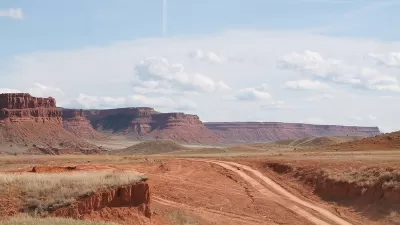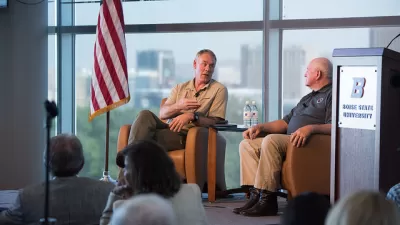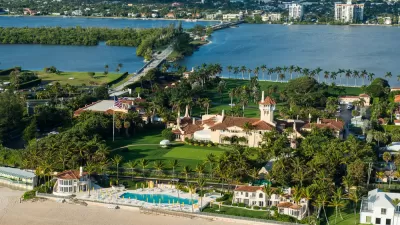As the Department of the Interior auctions off 'vast swaths' of American wilderness to oil and gas companies, fiscal conservatives and conservationists alike wonder if it’s the right thing at the right time.

A recent article from the Houston Chronicle, a newspaper that is, of course, based in an oil-and-gas town, bears the headline: "Even some Republicans worry that Trump is selling American wilderness to oil and gas firms."
"Last year," James Osborne writes, "the Department of Interior put almost 12 million acres of federal land on the block, more than double what was auctioned at the peak of the George W. Bush administration."
This has included pieces of land that border Dinosaur National Monument, Canyonlands National Park and Hovenweep National Monument, not to mention that "[j]ust outside Grand Canyon National Park, a ban on uranium mining enacted to keep radioactive pollution from flowing into the Colorado River is under review by Interior for possible reversal."
In addition to those that are concerned about the sale of treasured land (or the sale of treasured ocean in most parts of the country), there are those concerned that low natural gas prices mean this is not the right time to sell. The DOI may have auctioned 12 million acres, but only 800,000 have found interested buyers, most of whom are getting "considerable bargains."
Or, as Osborne writes, "[w]ith bidding interest so low, budget hawks say, auctioning so many leases is neither good business nor good policy, ultimately benefiting private interests while delivering tiny returns to U.S. taxpayers who own the land."
FULL STORY: Even some Republicans worry that Trump is selling American wilderness to oil and gas firms

Alabama: Trump Terminates Settlements for Black Communities Harmed By Raw Sewage
Trump deemed the landmark civil rights agreement “illegal DEI and environmental justice policy.”

Study: Maui’s Plan to Convert Vacation Rentals to Long-Term Housing Could Cause Nearly $1 Billion Economic Loss
The plan would reduce visitor accommodation by 25% resulting in 1,900 jobs lost.

Why Should We Subsidize Public Transportation?
Many public transit agencies face financial stress due to rising costs, declining fare revenue, and declining subsidies. Transit advocates must provide a strong business case for increasing public transit funding.

Paris Bike Boom Leads to Steep Drop in Air Pollution
The French city’s air quality has improved dramatically in the past 20 years, coinciding with a growth in cycling.

Why Housing Costs More to Build in California Than in Texas
Hard costs like labor and materials combined with ‘soft’ costs such as permitting make building in the San Francisco Bay Area almost three times as costly as in Texas cities.

San Diego County Sees a Rise in Urban Coyotes
San Diego County experiences a rise in urban coyotes, as sightings become prevalent throughout its urban neighbourhoods and surrounding areas.
Urban Design for Planners 1: Software Tools
This six-course series explores essential urban design concepts using open source software and equips planners with the tools they need to participate fully in the urban design process.
Planning for Universal Design
Learn the tools for implementing Universal Design in planning regulations.
Smith Gee Studio
Alamo Area Metropolitan Planning Organization
City of Santa Clarita
Institute for Housing and Urban Development Studies (IHS)
City of Grandview
Harvard GSD Executive Education
Toledo-Lucas County Plan Commissions
Salt Lake City
NYU Wagner Graduate School of Public Service




























